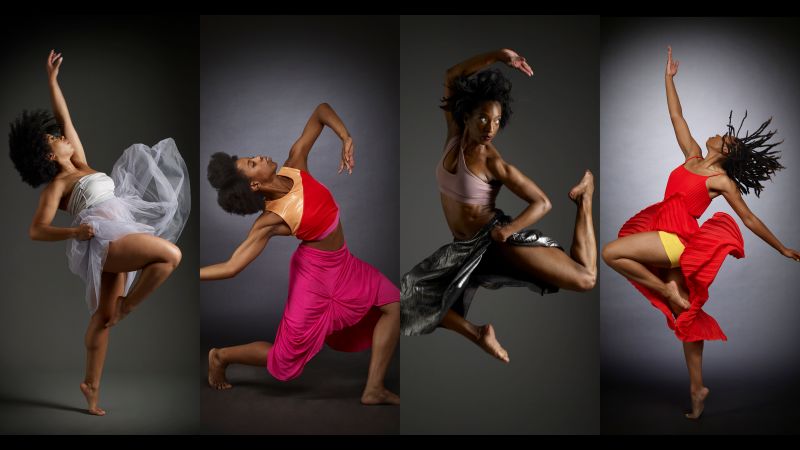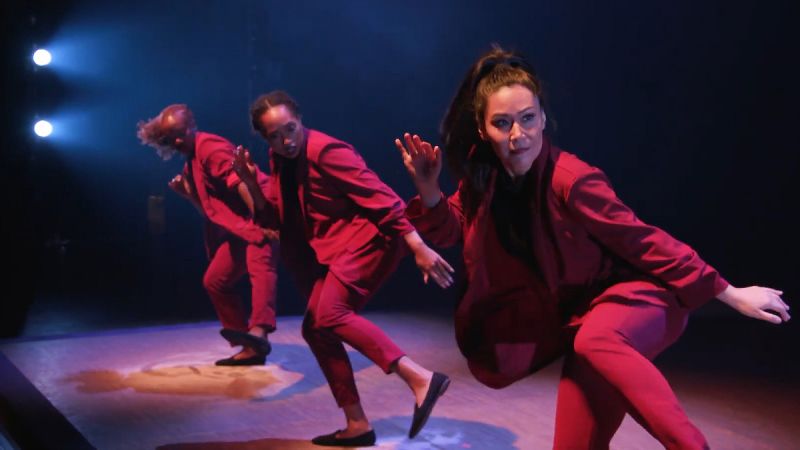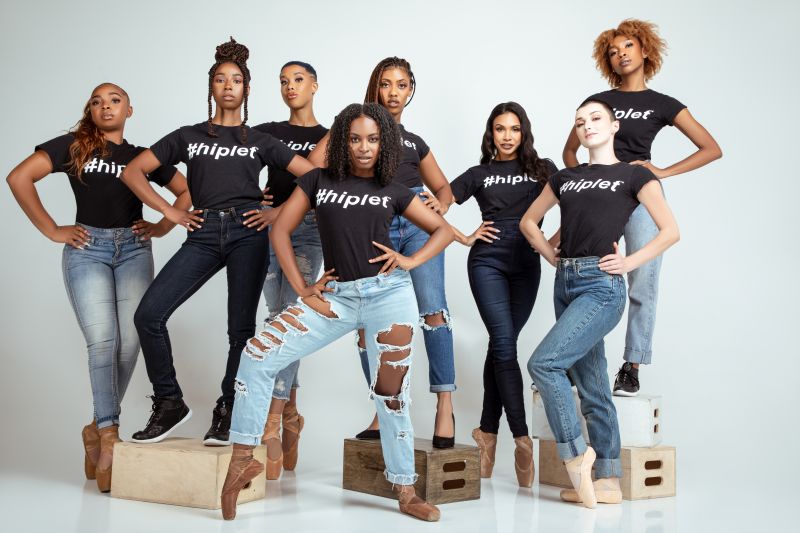
It may not be a leap year, but the Gordon Center for Performing Arts still wants people to “Take a Leap” this month. The theater will be hosting various dance companies and programs throughout February as part of its “Take a Leap” program, held in partnership with Baltimore County’s Commission on Arts and Sciences.
In addition to its focus on dance, this year’s slate of performances will also be a celebration of African-American culture in recognition of Black History Month. It represents a new focus that takes advantage of “Take a Leap” coinciding with Black History Month, said JCC of Greater Baltimore’s chief arts officer Sara Shalva.
“In the last few years, we’ve made a specific effort to highlight diversity, equity and inclusion, and invite dance companies that have either BIPOC dancers or are run by artistic directors or founders who come from minority populations, especially in dance,” she explained. “We’ve had Ballet Hispánico out of New York, and we’ve had Tentacle Tribe out of Montreal. This year is the intersection of Black History Month and ‘Take a Leap.’ ”
To coordinate the programming for this year’s program, Shalva formed a task force with three other creatives: Camille Weanquoi, the founder of the Baltimore Black Dance Collective; Sonia Synkowski, the coordinator of the Office of Performing Arts for Baltimore County Public Schools; and Stephanie Powell, a dance teacher and studio owner who currently teaches at the George Washington Carver Center for Arts and Technology.

Together, they came up with the idea to center Black dancers and Black-owned dance companies during the month of February.
Performances include the Hiplet Ballerinas, who perform an original style of dance that fuses elements of ballet and hip-hop. The group went viral five years ago when the YouTube channel Great Big Story posted a short documentary about them. The video currently sits at 2.7 million views, and the company has gone on to perform on national stages as well as on the TV show “America’s Got Talent.”
Also featured are Sole Defined, a BIPOC-led company specializing in percussive dance that uses the body as an instrument. More than 800 middle-school and high school students from the Baltimore area will be in attendance for the Feb. 7 and Feb. 8 performances, and will be treated to an afternoon of dance to foster a new appreciation for the performing arts.
The Gordon Center and Baltimore County Public Schools have worked together to organize field trips to performances for the past 10 years. “It was born out of a conversation we had about the fact that we all had aligned interests,” said Synkowski. “We wanted to make sure that Baltimore County Public School students receive arts-rich opportunities and professional experiences.”
“I was thinking a lot about … how we celebrate contributions to dance that haven’t been amplified or uplifted,” added Shalva. “How do we find those contributions and learn about them? We invite them to the Gordon Center stage.”
Other dance companies that will be performing at the Gordon Center during Black History Month include Full Circle Dance Company; Keur Khayeli African Dance & Cultural Institute, Inc.; Ballet After Dark; Dance Baltimore; and Stephanie Powell Danse Ensemble, which is directed by the eponymous organizer who helped coordinate this year’s dance programming.
Many of these dance companies are Black-owned, with some specializing in African styles of dance.

‘A place where you can be seen and represented’
“It’s important that students don’t just have the opportunity to make their own art, but to see and respond to others,” noted Synkowski. “It helps them develop as artists and students. Not all of our students have the ability to see live performances outside of what we can provide, so we want to make sure that we leverage our partnerships to provide performance opportunities to our students at no cost. That way, when we talk about performing, they get a picture of what it looks like to be a professional performer.”
As for why centering Black dancers was important for a program that would be seen by hundreds of students, she explained that from the school-system perspective, “Baltimore County Public Schools is a largely minority school system. So we want to make sure that our students see a pathway for themselves as dance artists, leading to a professional career or a profession or something in that realm, and this is another way to kind of elevate that. The arts are a place where you can be seen and represented.”
Dance-based programs, according to organizers, have proven fairly popular and well-received by students in the Baltimore area.
“I love and enjoy dancing to my fullest ability. It’s the best way to express myself and how I feel. Dance is important to me because it’s a part of who I am,” said Zendra G., a seventh-grade student at Pikesville Middle School. “Listening and feeling the rhythm of music always calms me down and helps to build my concentration. With that being said, dancing is an activity I appreciate and never give up on.”
“From dance, I have learned that I can do hard things and that I am stronger than I think,” agreed a student from the George Washington Carver Center, who asked to remain anonymous. “I have also learned to work together with other dancers to create beautiful masterpieces.”







